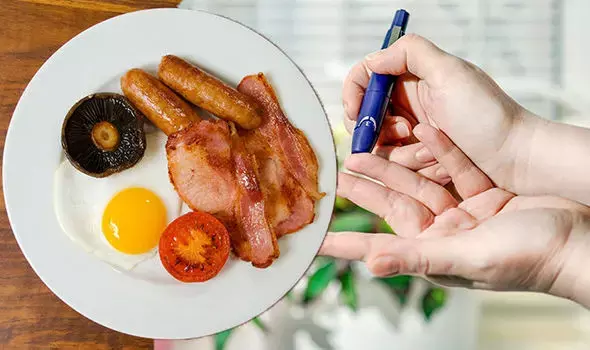- Home
- Medical news & Guidelines
- Anesthesiology
- Cardiology and CTVS
- Critical Care
- Dentistry
- Dermatology
- Diabetes and Endocrinology
- ENT
- Gastroenterology
- Medicine
- Nephrology
- Neurology
- Obstretics-Gynaecology
- Oncology
- Ophthalmology
- Orthopaedics
- Pediatrics-Neonatology
- Psychiatry
- Pulmonology
- Radiology
- Surgery
- Urology
- Laboratory Medicine
- Diet
- Nursing
- Paramedical
- Physiotherapy
- Health news
- Fact Check
- Bone Health Fact Check
- Brain Health Fact Check
- Cancer Related Fact Check
- Child Care Fact Check
- Dental and oral health fact check
- Diabetes and metabolic health fact check
- Diet and Nutrition Fact Check
- Eye and ENT Care Fact Check
- Fitness fact check
- Gut health fact check
- Heart health fact check
- Kidney health fact check
- Medical education fact check
- Men's health fact check
- Respiratory fact check
- Skin and hair care fact check
- Vaccine and Immunization fact check
- Women's health fact check
- AYUSH
- State News
- Andaman and Nicobar Islands
- Andhra Pradesh
- Arunachal Pradesh
- Assam
- Bihar
- Chandigarh
- Chattisgarh
- Dadra and Nagar Haveli
- Daman and Diu
- Delhi
- Goa
- Gujarat
- Haryana
- Himachal Pradesh
- Jammu & Kashmir
- Jharkhand
- Karnataka
- Kerala
- Ladakh
- Lakshadweep
- Madhya Pradesh
- Maharashtra
- Manipur
- Meghalaya
- Mizoram
- Nagaland
- Odisha
- Puducherry
- Punjab
- Rajasthan
- Sikkim
- Tamil Nadu
- Telangana
- Tripura
- Uttar Pradesh
- Uttrakhand
- West Bengal
- Medical Education
- Industry
Reducing hyperinsulinemic diet better at preventing diabetes than cutting high GI foods: Study

USA: Reducing hyperinsulinemic and proinflammatory components of diet is more effective for the prevention of type 2 diabetes than reducing intake of foods with high glycemic index (GI), suggests a recent study.
The findings, published in the journal Diabetes Care, suggest that lowering the inflammatory and insulinemic potential of the diet is more effective for type 2 diabetes prevention than focusing on glycemic foods.
The empirical dietary inflammatory pattern (EDIP) and empirical dietary index for hyperinsulinemia (EDIH) scores assess the inflammatory and insulinemic potentials of habitual dietary patterns. This is irrespective of the macronutrient content and is based on the plasma insulin response or inflammatory biomarkers, respectively. Glycemic load (GL) and glycemic index (GI) assess postprandial glycemic potential based on the dietary carbohydrate content. Qi Jin, The Ohio State University, Columbus, OH, and colleagues tested the hypothesis that dietary patterns promoting hyperinsulinemia, chronic inflammation, or hyperglycemia may influence type 2 diabetes risk.
For the purpose, the researchers calculated dietary scores from baseline (1993–1998) based on food frequency questionnaires among 73,495 postmenopausal women in the Women's Health Initiative, followed through March 2019. During a median 13.3 years of follow-up, 11,009 case subjects with incident type 2 diabetes were diagnosed.
Key findings of the study include:
- Participants consuming the most hyperinsulinemic or proinflammatory dietary patterns experienced greater risk of type 2 diabetes; HRs comparing highest to lowest dietary index quintiles were: EDIH 1.49 and EDIP 1.45.
- The absolute excess incidence for the same comparison was 220 (EDIH) and 271 (EDIP) case subjects per 100,000 person-years.
- GI and GL were not associated with type 2 diabetes risk: GI 0.99 and GL 1.01.
"Our findings in this diverse cohort of postmenopausal women suggest that lowering the insulinemic and inflammatory potentials of the diet may be more effective in preventing type 2 diabetes than focusing on glycemic foods," concluded the authors.
The study titled, "Insulinemic and Inflammatory Dietary Patterns Show Enhanced Predictive Potential for Type 2 Diabetes Risk in Postmenopausal Women,' is published in the journal Diabetes Care.
DOI: https://care.diabetesjournals.org/content/early/2021/01/04/dc20-2216
Dr Kamal Kant Kohli-MBBS, DTCD- a chest specialist with more than 30 years of practice and a flair for writing clinical articles, Dr Kamal Kant Kohli joined Medical Dialogues as a Chief Editor of Medical News. Besides writing articles, as an editor, he proofreads and verifies all the medical content published on Medical Dialogues including those coming from journals, studies,medical conferences,guidelines etc. Email: drkohli@medicaldialogues.in. Contact no. 011-43720751


